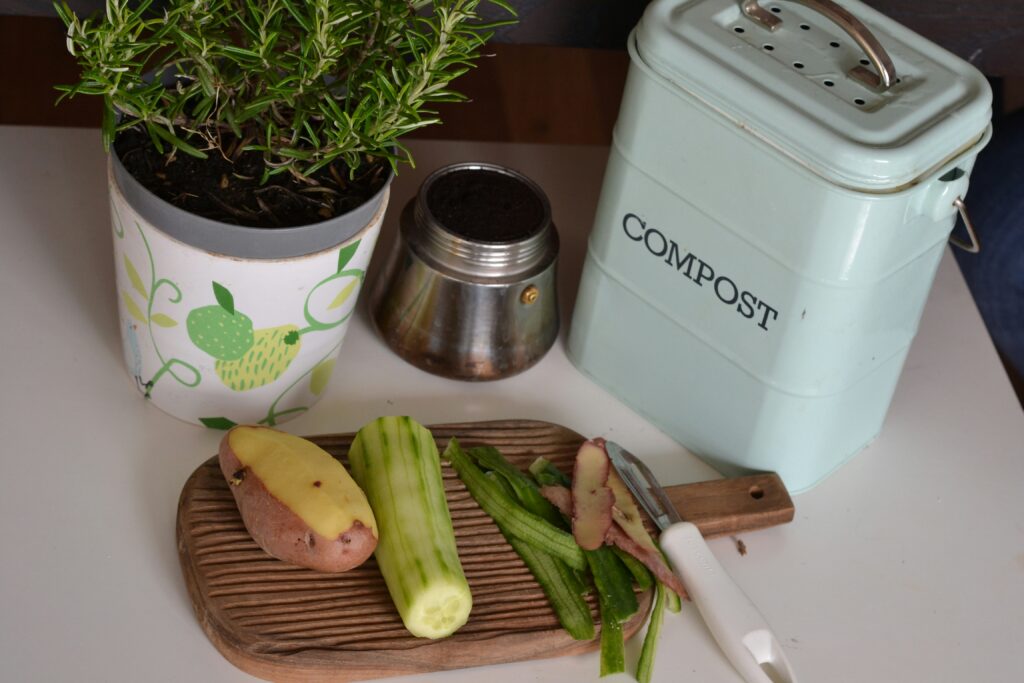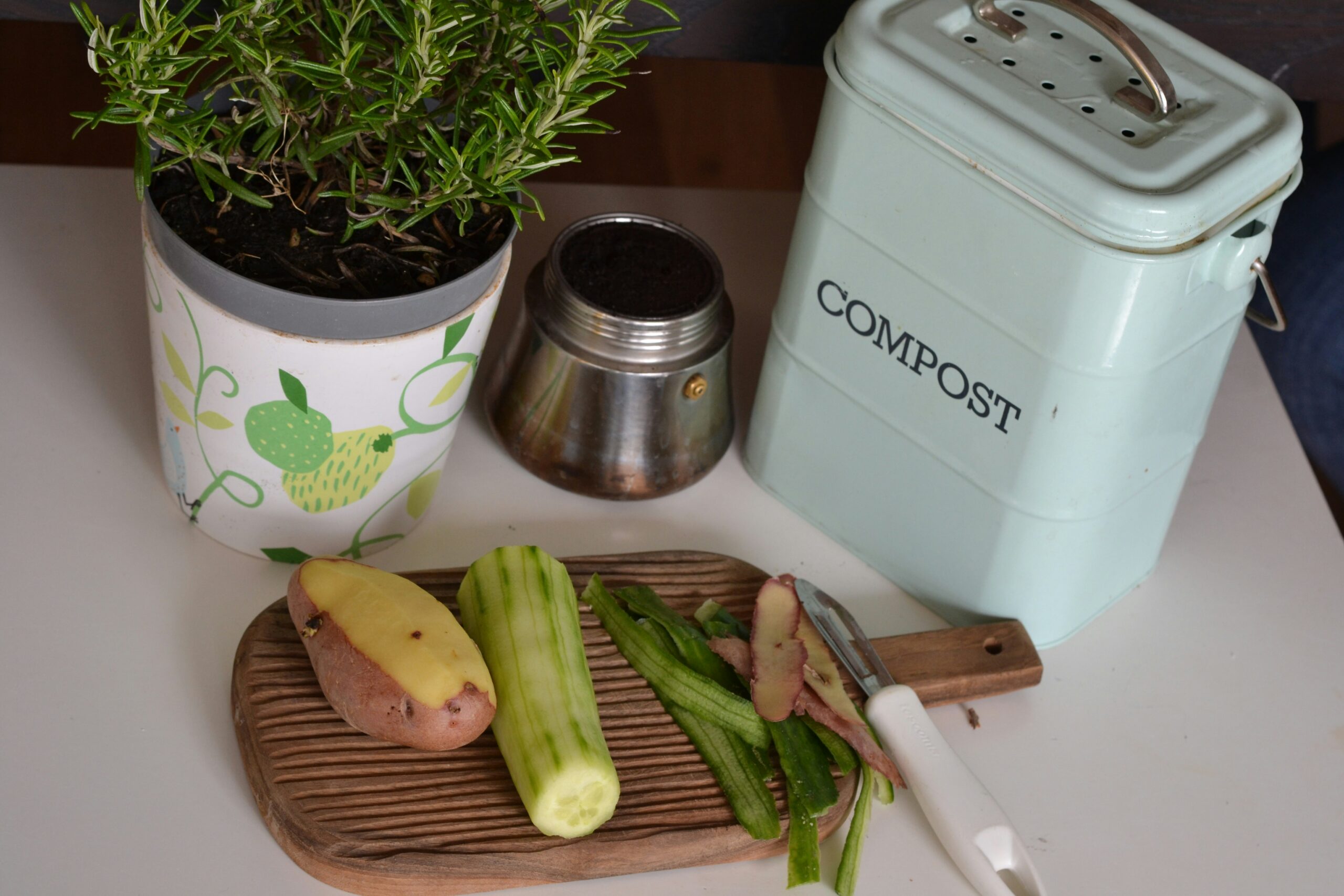Welcome to the A to Z of Eco! I’ve set myself the challenge of coming up with a list of sustainability-related words that might help those of us getting started on the journey. F is for food waste, something that is very close to my heart as it is something we can all impact. Changes we make can be easy and would impact out bank balance as well as the environment – a win/win!

According to WRAP, in 2021 approximately 10.7 million tonnes of food was wasted in the UK. This is around 25% of the total food purchased that same year. 60% of that figure (6.7 million tonnes) is attributable to household food waste. It is also estimated that around two-thirds of that wasted food is still edible.
Basically, we waste a lot of food. Environmentally, the UKs total food waste emits 5.5% of our total greenhouse gas emissions (25 million tonnes – see Food Waste facts). With the goal of cutting emissions overall, cutting food waste is certainly something we can all do immediately – and save ourselves money too. In a world where an increasing number of people are struggling to afford food, this seems even more important.
So, what can we do to minimize food waste?
There are a few things we can all do to minimize the food that we waste. Here are a few ideas:
Mindful Shopping
Start with your food shop. Plan your meals, create a shopping list and stick to it. Avoid impulse purchases, as these often lead to buying more than needed. The outer areas of most food shops, where all the bargains are to be had, are there to make you buy more. Also, pay attention to expiration dates, choose imperfect produce (which is often perfectly edible), and consider buying in bulk for items with a longer shelf life.
Proper Storage
The way you store your food can significantly impact its freshness and longevity. Familiarize yourself with the optimal storage conditions for different types of produce and invest in proper storage containers. Make sure you know your use-by dates and best-before dates. Don’t forget that the latter is just that – a guide to when a food is best eaten; it doesn’t mean that something has gone off after that date.
Make use of your freezer too. If you batch-cook, choose the right storage for your food and fill it up! A full freezer works better too.
Meal Planning
I’ve mentioned this already but it deserve a heading to itself. Set aside time each week to plan your meals, taking into consideration the ingredients you already have. This not only helps you buy only what you need but also ensures that you use all the ingredients you purchase. Get creative with leftovers by incorporating them into new meals or freezing them for future use. Apps and online tools can assist you in creating meal plans and shopping lists tailored to your preferences and dietary needs.
When planning, be mindful of portion sizes too. This not only reduces the chances of leftovers going uneaten but also promotes healthier eating habits. You can always make up gaps with more veggies!
Composting
Despite our best efforts, there will be times when food scraps are unavoidable. Instead of sending them to the landfill, consider starting a compost bin. Composting not only reduces the environmental impact of food waste but also creates nutrient-rich soil that can be used for gardening. If your council provides a food waste collection service, make use of it. These are so helpful if you don’t have a garden.
Advocacy and Education
Use your voice to advocate for change in your community. Join a community group, encourage local businesses to adopt sustainable practices and share information on reducing food waste with friends, family, and colleagues. The more people are aware of the issue, the greater the impact we can collectively achieve.

Reducing food waste is a collective responsibility that starts with us. By adopting any change, we can make a difference to our pockets and the environmental impact of food waste. In fact, it’s probably the easiest way we can make a difference.
Check out the rest of my A to Z of Eco series here.

